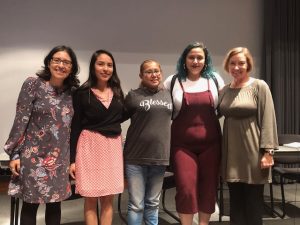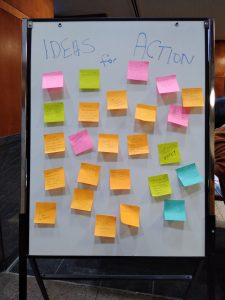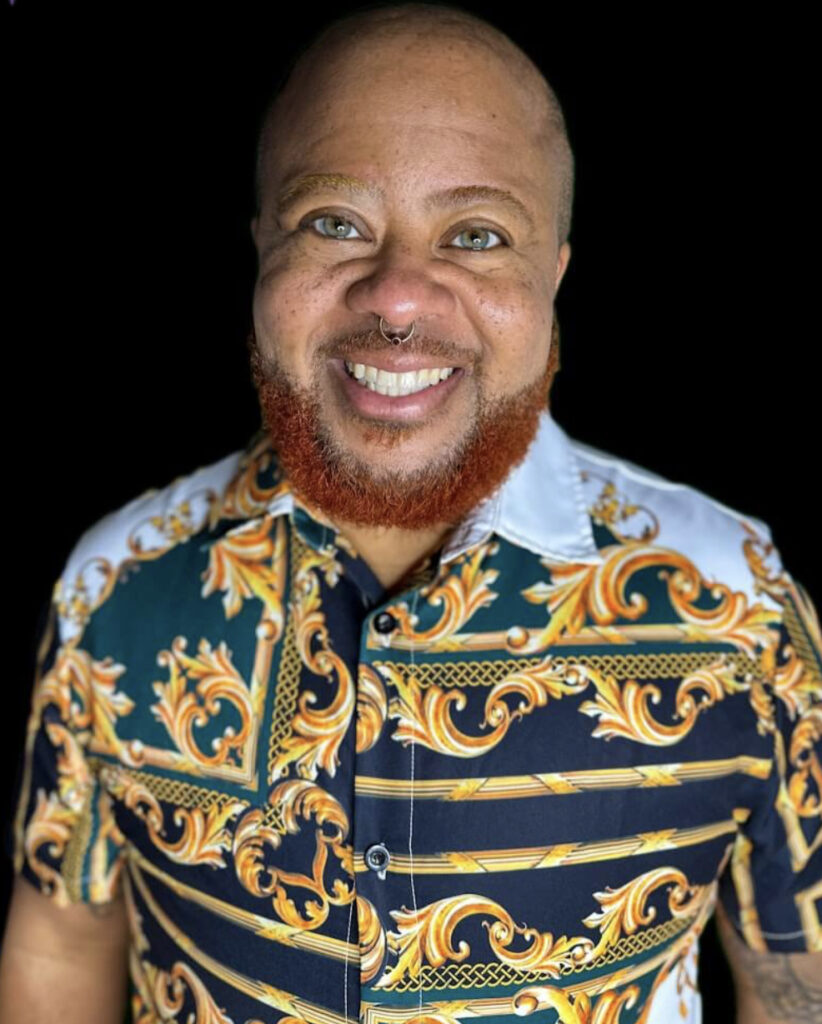
On October 28, 2019, the Jordan Institute for Families – in collaboration with the UNC School of Social Work Latinx Caucus and the Social Justice Action Collaborative – hosted the event #DONTLOOKAWAY. This panel discussion focused on the impacts of family separation on immigrant families and children in North Carolina featuring speakers who shared about the pressing issues facing the Latinx immigrant community in North Carolina.
Kathy Diaz, a community organizer for Siembra NC spoke about Siembra’s focus on defending Latinx rights and building power among undocumented and documented folks across North Carolina. She shared stories of her time working with families impacted by ICE raids and emphasized the importance “just showing up” for one another in the community. She also highlighted the purchasing power and shared how corporations, such as Amazon, are benefiting from immigrant family separations and detentions.
Ana, a member of Alerta Migratoria and Yuliana, a graduate student in the UNC Gillings school of Public Health, both shared the impact of having immediate family members detained by ICE. Yuliana, shared about her father being separated from her family for a little over 4 years and talked about the mental health toll it has taken on and her mother. Ana shared the story of her brother in law and shared how her biggest form of fighting for her brother-in-law is using her voice to share her story to gain support but also to spread awareness that this wasn’t only happening to her. Both Ana and Yuliana emphasized the power people have to continue echoing their stories to people who will listen.
Julie Holt, an LCSW who works for the USCRI, talked about how children who have been separated from their families from ICE often end up with her organization because they do not fall under the jurisdiction of Child Protection Services. She challenged the audience to think about understanding immigrant family separations as not only impacting folks from Central and South America but also how these policies affect refugees entering the country as well.
Gabriela Livas Stein, Ph.D. spoke about the mental health effects immigrant family separation has on parents but more importantly the developmental impact it leaves on children as well. She highlighted the importance of providing trauma informed and culturally aware mental health services for these families and talked about the barriers that may exist for people needing to access these services. Dr. Stein also said it was important for people to be aware and pay attention to those who surround us every day –in addition to the clients we serve– who may be suffering silently without our knowledge.
Among all of our panelists, the biggest call to action for anyone looking to make an impact in the area of immigrant family separations is to think about what you can contribute and where. They reflected on how the civil rights movement needed many types of people and skills to make change and said there is something everyone can do today to answer the call. In sum, the panelists urged audience members to take action and speak out because as Martin Luther King Jr. said, “We start to lose our lives when we become silent about the things that matter. ”

Ways to Take Action:
- Show Up
- Share the “Know your Rights” card widely
- Call Congress and other representatives
- Advocate for driver’s licenses for undocumented folks
- Create a sanctuary city where people can feel safe
- Vote and engage in elections – that has led to change in sheriff offices and in different cities in NC
- Be aware and pay attention to people around you / who you serve who may be suffering silently and are impacted
Additional Resources:
TedX Video: Juan Enriquez: A Personal Plea for Humanity at the US Border (Sept. 2019)
In this powerful, personal talk, author and academic Juan Enriquez shares stories from inside the immigration crisis at the US-Mexico border, bringing this often-abstract debate back down to earth — and showing what you can do every day to create a sense of belonging for immigrants. “This isn’t about kids and borders,” he says. “It’s about us. This is about who we are, who we the people are, as a nation and as individuals.”
Netflix Docuseries: Living Undocumented (2019)
Eight undocumented families’ fates roller-coast as the United States’ immigration policies are transformed.
Fresh Air with Terry Gross: From Snakes to Spike, Reports Reveal Trump’s Extreme Border Proposals (10/03/19)
In this NPR podcast, Davis and her Times colleague Michael Shear have covered the Trump administration from its earliest days. They chronicle the president’s attempts to upend the nation’s immigration system in their new book, Border Wars: Inside Trump’s Assault on Immigration, publishing on Oct. 8.
Book: Border Wars: Insight on Trump’s Assault on Immigration (2019)
Two New York Times Washington correspondents provide an inside account with never-before-told stories of the defining issue of Donald Trump’s presidency: his steadfast opposition to immigration to the US.
Article: If Parents Get Deported, Who Gets Their Children? (Oct. 25, 3018)
This article explores what the process of what happens after children get separated from their parents after deportation
From NASW: Child Migrant Protection Toolkit
This toolkit includes includes information on legislation to help migrants; a form letter that you can send to your state governor and state legislators to urge them to take action; NASW Social Justice Briefs, statements and research regarding immigration; and links to NASW partner organizations.
